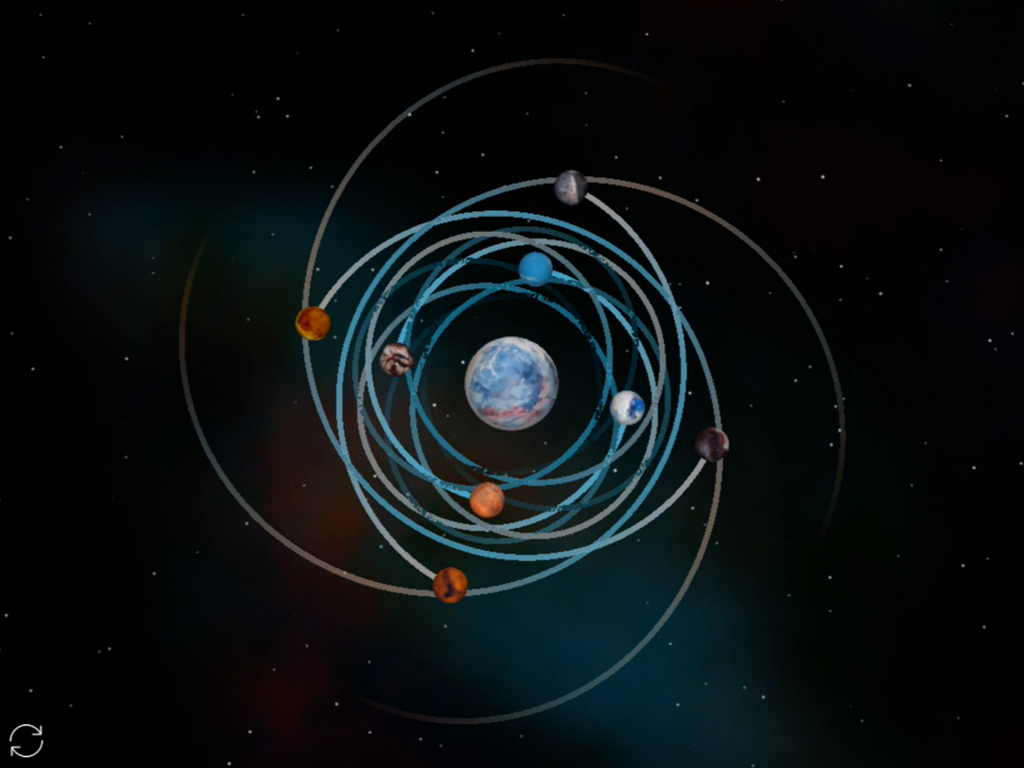Games and apps for physics lovers Part 1
Create your own Solar system and crazy experiments with nuclear reactions – all in the field of apps and games to study physics.
With the development of technology in the field of attention of game developers got the education. Today it is not uncommon to meet interactive tutorial on the geometry or the periodic table, the app for learning algebra, online folio for understanding the history of the Universe or geographical play. Teachers just have to choose if they are certainly ready to make this choice. Today we offer 13 different apps and games that can be useful in the study of physics. However, they are so interesting that it is suitable not only pupils and students but to all who are interested in the structure of our world.

Snapshots of the Universe
Snapshots of the Universe – is an amazing application for iOS have been published recently by Stephen Hawking in conjunction with Random House. The app consists of eight experiments, which give users the opportunity not only to gain basic knowledge in physics, but also to get acquainted with the principles that govern our Universe. In the proposed experiments, the players can send rockets into space, collect your own star system to find and study black holes. Every experiment can be performed countless times, by changing physical parameters and observing the emerging effects. To better understand the experiments, you can go into a section explaining the results and watch the video. The app is available on iTunes. The cost of the game from the great physicist is only $4.99.
Crayon Physics Deluxe
Crayon Physics Deluxe is a 2D puzzle/game “in the sandbox”, which gives the opportunity to experience players what would happen if their drawings could turn into real physical objects. The player’s task – to help the ball to collect stars by drawing suitable for traffic surfaces – bridges, ferries, levers, etc. All happens in the magical world of children’s illustration, where the tools of the player are wax pencils. At least the game develops artistic vision and creativity, as a maximum – enables you to learn the basics of mechanics — gravity, acceleration and friction. To test the demo version, full version for PC, Mac and Linux can be purchased for $19.95, the app on Android and iOS will cost $2.99.
Physics Playground
However, for those who have just begun to explore body movement, and various physical forces will also be interesting to see the educational video game Physics Playground. The game is a platform on which the player must perform a fairly simple action – using the green ball to knock the red balloon. Here begins the classical mechanics: without the correct application of Newton’s laws, players are unlikely to construct in an interactive environment mechanisms that will help to propel the ball. However, it is possible to use intuition – the important thing is that over 80 levels of intuitive knowledge to reach the goal gradually lead to understanding the patterns that underlie classical mechanics. The game was developed by Empirical Game, which deals with the creation of developing educational games. Free it, unfortunately, is not, however, developers offer you to contact them if you are interested in this product. In the full version, you can track the progress of players through log analysis log file.

Newton’s Playground
“Science, the entertainment industry and the game merged into a beautiful unique creative experience Newton’s Playground. Manipulate the Universe, and create incredible combinations of planets and launch gravity” – say the creators of the application. Newton’s Playground is an interactive application that is based on models reflecting the interaction between different gravitational bodies. Simulating the gravitational relationships of the planets, a small application Newton’s Playground is giving their players the opportunity to observe the interaction of spheres floating in open space, or to experiment with the mass and density of the various bodies and to create their own Solar system. All calculations are based on the research of the Institute of astronomy Sverre Aarseth. Cost of application in the App Store – just $1.99.